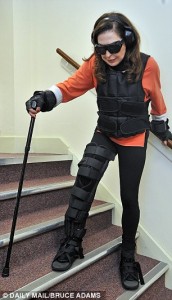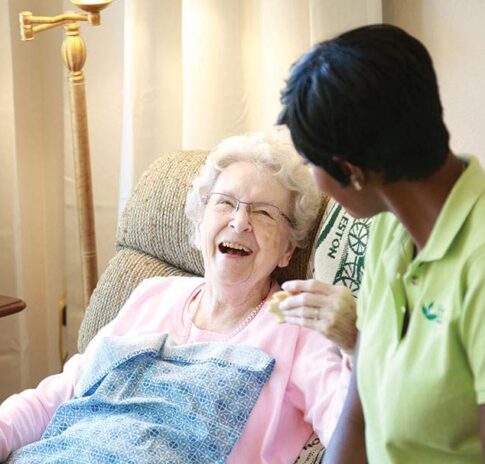 Without a doubt, our society is obsessed with being younger. More than $114 billion will be spent on anti-aging products by 2015. We’re always after the “fountain of youth”, a way to turn back the clock and eradicate the wrinkles on our face and maintain our youthful vigor.
Without a doubt, our society is obsessed with being younger. More than $114 billion will be spent on anti-aging products by 2015. We’re always after the “fountain of youth”, a way to turn back the clock and eradicate the wrinkles on our face and maintain our youthful vigor.
I remember when I was young and my Mom was 50. I thought that was ancient! Now that I am in my 50s, even 80 seems young. Your perspective totally changes. When my kids call me an “old lady”, I am offended by the reference.
Wonder why our aging parents are always talking about their health and aching joints? Too often we push aside their complaints without offering much sympathy. However, we really don’t realize what they are going through.
That’s why I find this story so fascinating. Amy Patel, a 50-year-old from the United Kingdom was given an “aging suit” that added 30 – 40 years to the way she felt. Both of her parents are in their 80s and she wanted to emulate their experience.
A Glimpse into the Future
The concept was developed by the dementia unit at the Mid Yorkshire Hospitals NHS Trust to help those who care for the elderly to better understand their patients’ needs and fears. Patel wore dark glasses to mimic cataracts, leaving her with tunnel vision and blurred peripheral sight. She wore ear defenders to simulate hearing loss, a neck brace to limit her mobility and a weighted vest that made her stoop. Additionally, weights were strapped on to her feet to imitate arthritis and vibrating gloves reproduced the feelings of Parkinson’s.
The result was not pretty, but realistic.
Patel couldn’t see, bend down, hear or hardly move. As she described it, it took ten minutes to transform her from a vibrant 5 feet 7 inch tall woman into a “bowed down old lady, my back aching, unable to do more than shuffle along with the aid of a walking stick.” She felt isolated confused, and frightened. As she said, small tasks like making coffee or a meal became a major project.
And the worse part? Not only did the aging suit change her physically, but mentally as well. Her loneliness, embarrassment and feelings of defenselessness left her depressed. After only an hour and a half in the suit, she was physically and emotionally drained.
And she wasn’t the only one. A physically fit 19-year-old rugby player who tried on the suit couldn’t even walk 100 yards in it.
Be Compassionate To The Elderly
So if your parents have problems getting in and out of the car, maneuvering stairs or forgetfulness, it’s important to be compassionate not critical. Don’t hurry them. Under the circumstances, they are probably going as fast as they can.
Don’t honk at elderly drivers. Chances are, they probably shouldn’t be driving, but they don’t want to give up their independence. Hold the door open for the elderly if they are walking into a building. Gently repeat things of they can’t hear you well and don’t get annoyed at them. Have you ever tried hearing aids yourself? It’s not as easy as you think – sometimes, they make it harder to hear! If they have good hearing in one ear, always try and talk toward that side.
At FirstLight Home Care, we don’t need to be reminded to be kind to the elderly, because it’s both our job and our passion. We take care of aging parents and loved ones who may be temporarily or permanently have a hard time taking care of themselves. We respect our client’s physical and mental limitations and have developed a dementia care plan that keeps the elderly safe and active.
As Patel concludes: “I have walked in the shoes of the elderly and infirm, and it was the most disconcerting, humbling experience I’ve ever had. Walk a mile in someone else’s shoes before you judge them.”
If you know a loved one who needs help with dementia or the activities of daily living, contact FirstLight Home Care today.
Photo courtesy of Bruce Adams, Daily Mail
